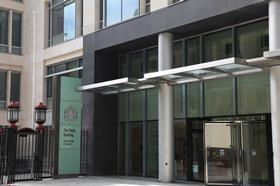The former boss of the AA agreed that he was aware his case against his former employer had less than a 50% chance of success, the High Court has heard. Robert Mackenzie is suing Rosenblatt Solicitors, now Rosenblatt Ltd, alleging the law firm was negligent in allowing him to press ahead with his conspiracy claim that the recovery breakdown service wanted him out.

Rosenblatt denies negligence in the High Court hearing, which is expected to last a week.
The former executive chairman and chief executive of the AA was removed from his role after a company away-day ended with a fight between Mackenzie and another AA executive.
Though Mackenzie, who has suffered mental health and memory problems, tried to resign due to ill-health, the AA board refused. Mackenzie was dismissed in August 2017 for gross misconduct.
His dismissal meant Mackenzie lost a share entitlement, which he believes to be worth up to £220m, and the AA sought to recover a bonus of around £1.2m.
For Rosenblatt, Nicholas Bacon KC said: ‘After four years... [Mackenzie's case] has failed. It has not got anywhere. You may continue to believe in its strength but others including the courts, do not.’
Mackenzie replied: ‘I believe I still have something on unfair dismal and my mental health situation.’
Bacon put to Mackenzie: ‘You knew it was unlikely to succeed.’
Mackenzie said: ‘That is preposterous.’
He told the hearing: ‘What really shocked me was Adam Solomon KC saying the conspiracy charge never had a hope, that it was a hopeless one, very difficult to prove and we should never have started. I decided to get rid of Rosenblatt immediately.’
Bacon said: ‘Even when you were told the case had less than 50% chance of success, that is the entire case, you continue. You continue for years.’
Mackenzie replied: ‘Yes. We continued on a very different line. I was told less than 50% for the conspiracy not the entire case.’
The hearing is the latest in a long legal battle between Mackenzie and the AA which reached the Court of Appeal in July 2022.
The hearing continues.


























